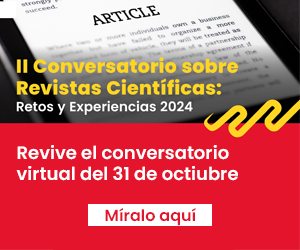Autoeficacia en usuarios de servicios hospitalarios ambulatorios
DOI:
https://doi.org/10.20453/rmh.v35i2.5373Keywords:
Self efficacy, , ambulatory care, anxiety, depression, alcohol-related disordersAbstract
Self-efficacy is a mediatting variable of behavior change in psychosocial interventions for managing health problems. Objective: To establish the level of self-efficacy in the population treated in general hospitals and health centers in Metropolitan Lima and its relationship with common mental problems and prevalent clinical diagnoses. Materials and methods. Study of secondary data from the Epidemiological Study of Mental Health in General Hospitals and Health Centers in Lima-2015. The Schwarzer and Jerusalem General Self-efficacy Scale (GSE) was analyzed in relation to sociodemographic variables, medical specialties, frequent clinical diagnoses, and anxiety, depression, and alcohol abuse/dependence. The data were analyzed with descriptive methods and with inferential methods using tests of independence of means and correlation. Results. The average score of the GSE was 30.89+6.29 and lower in users of the general medicine, psychiatry and neurology specialties, and in the psychology service. Self-efficacy was inversely related to the presence of depression and anxiety, and not to alcohol abuse/dependence. In the six most frequent clinical diagnoses, the GSE score was not different from that shown by all respondents, except in HIV. Conclusions. Self-efficacy varies according to sociodemographic conditions; the mean of the self- efficacy scale in the hospital population is lower than that reported in the general population, and it is lower in depression and anxiety in general than in other clinical pathologies. The convenience of interventions to strengthen the self-efficacy of those attended in the treatment process is highlighted.
Downloads
References
Bandura A. Self-efficacy: Toward a Unifying Theory of Behavioral Change. Psychol Rev. 1977; 84(2):191-215. doi: 10.1037//0033-295x.84.2.191
Scholz U, Gutiérrez-Doña B, Sud S, Schwarzer R. Is general self-efficacy a universal construct? Psychometric findings from 25 countries. EJPA. 2002; 18 (3): 242-251. doi: 10.1027/1015-5759.18.3.242
Ashford S, Edmunds J, French D. What is the best way to change self-efficacy to promote lifestyle and recreational physical activity? A systematic review with meta-analysis. Br J Health Psychol. 2010; 15:265–288. DOI:10.1348/135910709X461752
Karademas E. Self-efficacy, social support and well-being the mediating role of optimism. Pers Indiv Differ. 2006; 40(6): 1281–1290. doi: 10.1016/j.paid.2005.10.019
Schwarzer R. Health Action Process Approach (HAPA) as a Theoretical Framework to Understand Behavior Change. Actual Psicol: 2016 30(121):119. DOI: 10.15517/ap.v30i121.23458
Kärner Köhler A, Tingström P, Jaarsma T, Nilsson S. Patient empowerment and general self-efficacy in patients with coronary heart disease: a cross-sectional study. BMC Fam Pract. 2018; 19(1):76. doi: 10.1186/s12875-018-0749-y
Greenglass E, Fiksenbaum L. Proactive Coping, Positive Affect, and Well-Being Testing for Mediation Using Path Analysis. European Psychologist. 2009; 14(1): 29–39. doi 10.1027/1016-9040.14.1.29
Tsiligianni I, Sifaki-Pistolla D, Gergianaki I, Kampouraki M, Papadokostakis P, Poulonirakis I, et al. Associations of sense of coherence and self-efficacy with health status and disease severity in COPD. NPJ Prim Care Respir Med. 2020; 30(1): 27. doi: 10.1038/s41533-020-0183-1
Ortiz M y Ortiz E. Psicología de la salud: Una clave para comprender el fenómeno de la adherencia terapéutica. Rev Méd Chile. 2007; 135: 647-652. doi: 10.4067/S0034-98872007000500014
Saavedra JE, Paz V, Robles Y, Luna Y, Zevallos S, Cruz V, Huamán J.. Estudio Epidemiológico de Salud Mental en Hospitales Generales y Centros de Salud de Lima Metropolitana – 2015. Informe General. Anales de Salud Mental. 2018; XXXIV(1):17-184.
Villamarín F. Papel de la auto-eficacia en los trastornos de ansiedad y depresión. Anal Modif Cond. 1990; 16(47):55-79.
Salinas J, Bello S, Chamorro H y Gonzalez C. Consejería en alimentación, actividad física y tabaco. Instrumento fundamental en la práctica profesional. Rev Chil Nutr. 2016; 43(4):434-442. doi: 10.4067/S0717-75182016000400015
Schwarzer R, Mueller J, Greenglass E. Assessment of perceived general self-efficacy on the Internet: Data collection in cyberspace. Anxiety Stress Coping. 1999; 12(2):145-161. doi: 10.1080/10615809908248327
Luszczynska A, Gutiérrez-Doña B, Schwarzer R. General self-efficacy in various domains of human functioning: Evidence from five countries. Int J Psychol. 2005; 40(2):80–89. doi.org/10.1080/00207590444000041
Saavedra JE, Paz V, Vargas H, Robles Y, Pomalima R, González S, Zevallos S, Luna Y, Saavedra C. Estudio Epidemiológico de Salud Mental de Lima Metropolitana y Callao 2012-Replicación. Informe General. Anales de Salud Mental. 2013; XXIX (Supl 1):21-268.
Foroumandi E, Kheirouri S, Alizadeh M. The potency of education programs for management of blood pressure through increasing self-efficacy of hypertensive patients: A systematic review and meta-analysis. Patient Educ Couns. 2020; 103(3):451-461. doi.org/10.1016/j.pec.2019.09.018
MINSA. REUNIS. Repositorio único Nacional de información en salud. [Citado el 11 diciembre 2022]. Disponible en: http://www.minsa.gob.pe/reunis/data/morbilidad_HIS.asp
Ballou S, Taft T, Keefer L. Disease-specific self-efficacy in the eosinophilic gastrointestinal disorders. J Health Psychol. 2015 Aug;20(8):1027-36. doi: 10.1177/1359105313506028.
Wolf M, Davis T, Osborn Ch, Skripkauskas S, Bennett Ch, Makoul G. Literacy, self-efficacy, and HIV medication adherence. Patient Educ Couns. 2007; 65(2):253-260. doi.org/10.1016/j.pec.2006.08.006
Ghouri F, Hollywood A, Ryan K. ‘There is no choice apart from antibiotics…’: Qualitative analysis of views on urinary infections in pregnancy and antimicrobial resistance. Health Expect. 2020; 23(3):644–650. DOI: 10.1111/hex.13044
Martín-Núñez J, Heredia-Ciuró A, Valenza-Peña G, Granados-Santiago M, Hernández-Hernández S, Ortiz-Rubio A, et al. Systematic review of self-management programs for prostate cancer patients, a quality of life and self-efficacy meta-analysis. Patient Educ Couns. 2023; 107:107583. doi.org/10.1016/j.pec.2022.107583
Bahamondes C, Casanga M, Castro M, Jorratt A. Relación de los Factores Psicoemocionales en la Intensidad del Dolor y la Funcionalidad en Usuarios Adultos con Lumbalgia Crónica Inespecífica de las Comunas de Coquimbo y La Serena. Dolor. 2018; 28(70):24-28
Mohebi S, Azadbakht L, Feizi A, Sharifirad G, Kargar M. Review the key role of self-efficacy in diabetes care. J Edu Health Promot [serial online] 2013; 2:36. DOI: 10.4103/2277-9531.115827
Tabernero C, Gutiérrez-Domingo T, Vecchione M, Cuadrado E, Castillo-Mayén R, Rubio S, et al. A longitudinal study on perceived health in cardiovascular patients: The role of conscientiousness, subjective wellbeing and cardiac self-efficacy. PLoS One. 2019; 14(10): e0223862. doi: 10.1371/journal.pone. 0223862
Rzadkiewicz M, Nasiłowski J. Psychosocial Interventions for Patients with Severe COPD-An Up-to-Date Literature Review. Medicina (Kaunas). 2019; 55(9):597. doi: 10.3390/medicina55090597
Girvalaki C, Papadakis S, Mechili EA, Nikitara K, Demin A, Trofor AC et al. Impact of the ENSP eLearning platform on improving knowledge, attitudes and self-efficacy for treating tobacco dependence: An assessment across 15 European countries. Tob Induc Dis. 2020; 7:18:40. doi: 10.18332/tid/120188
Franek J. Self-management support interventions for persons with chronic disease: an evidence-based analysis. Ont Health Technol Assess Ser. 2013;13(9):1-60.
Madueño-Caro AJ, Mellado-Fernández ML, Pardos-Lafarga M, Muñoz-Ayllón M, Saez-Garcia L, Gómez-Salgado J. Cardiac Rehabilitation in Primary Care. Impact of an Intervention on Perceived Self-Efficacy. J Funct Morphol Kinesiol. 2019; 4(2):32. doi: 10.3390/jfmk4020032
Brands I, Custers M, van Heugten C. Self-efficacy and Quality of Life after Low-intensity Neuropsychological Rehabilitation: A Pre-post Intervention Study. NeuroRehabilitation 2017; 40(4):587-594. DOI: 10.3233/NRE-171446
Fulton J, Mastergeorge A, Steele J, Hansen R. Maternal perceptions of the infant: relationship to maternal self-efficacy during the first six weeks’ postpartum. Infant Ment Health J. 2012; 33(4):329–338. DOI: 10.1002/imhj.21323
Downloads
Published
How to Cite
Issue
Section
License
Copyright (c) 2024 Yolanda Robles, Martín Padilla Lay

This work is licensed under a Creative Commons Attribution 4.0 International License.
Authors assign their rights to the RMH so that may disseminate the article through the means at their disposal. The journal will provide forms of affidavit of authorship and authorization for the publication of the article, which shall be submitted with the manuscript. Authors retain the right to share, copy, distribute, perform and publicly communicate their article, or part of it, mentioning the original publication in the journal.



















